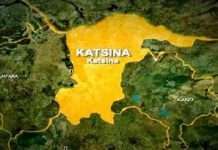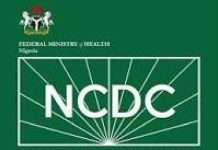
Post author:The Nigerian Society of Anaesthetists (NSA) has advocated for improved health systems, welfare of workers and security to enhance cancer patients outcome in the country and reduce brain drain.
The Nigerian Society of Anaesthetists (NSA) has advocated for improved health systems, welfare of workers and security to enhance cancer patients outcome in the country and reduce brain drain.
They made the call, while briefing newsmen in Abuja ahead of the 2023 World Anaesthesia Day with theme: ” Anaesthesia and Cancer Care”, commemorated globally every 16 October.
Dr Busola Alagbe-Briggs, president of the NSA said the theme was to highlight the role of anaesthetists and draw more attention to cancer, which has been neglected due to COVID-19 pandemic and other diseases.
Alagbe-Briggs, added that cancer requires surgery, hence anaesthetists play a major role by ensuring that patient were fits for the procedure and also work with the surgeons and nurses to ensure it’s success.
”We all know about the Japa syndrome. There is diminished workforce and for this condition, WHO is saying that cancer will increase from 19.8 million to about 30 million by 2040.
”We are here to campaign that there is need for safe anesthesia and that comes through training and there is need for improved workforce.
”We have to increase the number of people who are trained to deliver anesthesia and we also have to ensure that there is enough funding to provide equipment to manage cancer.
”Some cancer cases need special gadgets to manage them even when we come to some of them that need them radiology that needs radiotherapy, they need funding.
”Some cancer cases need special drugs, which are expensive, so that is why we are here to say the world anaesthesia day is focusing on how anesthesia can improve cancer care.
”Some drugs also are not suitable for some patients who have cancer and are coming for anesthesia, so we are the ones responsible for managing them before, during and after together with the surgeons who are going to remove it. “Cancer needs better, national and global attention,” she said.
Also speaking, Prof. Iniabasi Ilori, chairman and chief examiner of Faculty of Anaesthesia, West African College of Surgeons, decried the diminishing manpower and insecurity which she said affects access to healthcare services in the country.
”They do not feel safe because they think that doctors are the target. So because of that, a lot of them are leaving.
”So if the government can improve the health facilities, care of the health personnel and security. I think people would like to stay,” she said.
Dr Maryrose Osazuwa, Vice President of the socirty, decried the neglect and support for children suffering from various types of cancer.
”A lot of attention needs to be focused on children. The National Health Insurance Authority needs to do more because the coverage is very abysmal.
”There are lots of people that are not covered by insurance so they cannot afford health care, so we loose these patients or they come in very late and make everything so complicated.
”So, insurance coverage has to be better done more widely. The government has to think of a way to get underserved populations and to get some form of insurance.
”There has been this call for some form of free surgeries for a certain group of children as it’s done in many other African countries.
”We can do it in Nigeria. It’s just a matter of efficiency and having the will to do these things,”she said.
Prof. Tonia Onyeka, National President of the Hospice and Palliative Care Association ( HPCAN), said: “We are calling on the government to take particular note of the manpower shortages for every specialty.
“But more importantly for anaesthesia so that we can have enough enough status to be able to take care of the particular needs of cancer patients with regards to pain management and symptom management.”
Also, Prof. Sotonye Fyneface-Ogan, former president, Society of Obstetric Anaesthetists of Nigeria (SOAN), stressed the need for the government to address the challenges to reduce the high figures of maternal mortality.
(NAN)











